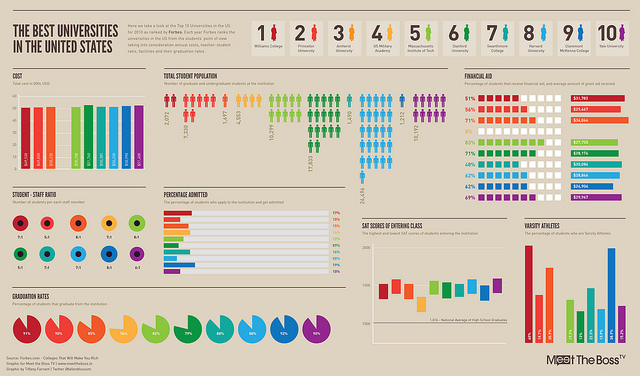By Victoria Tillson Evans, Ph.D.
Everyone wants the best for themselves and their family. That’s why we read reviews, seek expert advice, and measure our accomplishments against those of others. That’s also why so many college-bound students cling to U.S. News and World Report’s “Best College” rankings. After all, they tell us who provides a better education and college experience than anyone else. Or do they?
No Best Colleges Exist
Contrary to popular belief, U.S. News and World Report hardly paints a clear picture of which schools in the nation are “The Best.” This very premise in and of itself is flawed, since it ignores the fact that every student has unique interests and desires, and that there is no one-size-fits-all “Best College” for everyone, but “Best Fit Colleges” for every individual. While one student will be happy studying anthropology in the quiet atmosphere of a small liberal arts college in New England, another would much rather jump into business courses at a Big Ten school and root for their football team from the sidelines.
The Rankings Cost You Money
In the frenzy to appear higher in U.S. News and World Report’s rankings, colleges have been consistently raising their tuition prices above the national rate of inflation, because the system rewards colleges that spend a lot of money on its students. Colleges can’t wish money into being, so they pass the buck on to their undergraduates. An interesting case in point is George Washington University. There, the President continuously drove up tuition to build nicer facilities in order to attract more students to apply, so that the college became more selective and ranked higher in U.S. News. The Atlantic Monthly wrote a fascinating interesting article about him last year that you should check out: “Meet the High Priest of Runaway College Inflation: He Regrets Nothing” .
Colleges Misreport Information
Over the last five years, a number of schools have been caught falsifying their admissions data, including George Washington University, Clemson University, Claremont McKenna, Baylor University, and Emory University. Since there is little external oversight for how schools collect and report their information, it is quite easy for them to make things up. As such, everyone should beware of what any school says about its selectivity.
There Are Too Many Rankings
Within U.S. News and World Report alone, there are actually a multitude of “Best” lists: National Universities, National Liberal Arts Colleges, Regional Universities, Regional Colleges, Most Connected Colleges, Best Value Colleges, A+ Schools for B Students, Up-and-Coming Schools, and the list goes on and on. On top on those, there are even several other organizations, such as Forbes and Kiplinger, which have devised their own systems to rate American schools or the Q.S. and Times Higher Education rankings, which compare U.S. colleges with institutions across the globe. As a result, anyone can be the best at something and there is no standard metric by which to measure anyone, thus rendering U.S. News’ “Best College” and every other publication’s rankings impracticable.
So remember: Your goal is to find the best college for YOU, not what someone else tells you is the best school!

Comments are closed.